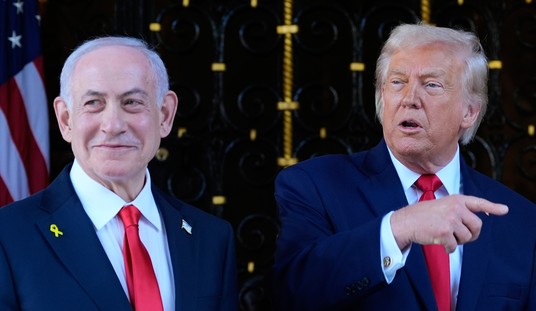While Bryan Preston reported on the State Department’s dabbling in prostitutes, cocaine, and sexual assault on June 10, two more developments arose at the Department of Energy and Centers for Medicare and Medicaid Services. One involved a senior official using his position to obtain jobs for his children, while the other concerned government employees having foreknowledge of a Medicare decision worth billions of dollars to private health care providers, which saw their stock shares rise as a result. It’s good ole’ fashioned nepotism and insider trading.
Concerning the DOE, Lachlan Markay of the Washington Free Beacon wrote on June 10 that:
A senior Energy Department official used his position to attempt to secure internships at the department for his three children, a report released Monday by federal watchdogs has found. The official denied any wrongdoing. Officials in DOE’s Human Capital office told investigators that the practice of advocating the hiring of family members is common among Energy Department employees.
However, other officials called the practice “problematic.” The apparent nepotism was revealed in a report from the DOE inspector general. The report substantiated whistleblower allegations of nepotism, though it did not substantiate more serious charges that the DOE official enrolled his children in expensive training programs.
[…]
Federal law prohibits employees of a federal agency from hiring, promoting, or advocating on behalf of a relative within the same agency. An internal DOE memo on the statute advises that it applies to internships as well as full-time agency positions.
Shifting to Medicare, the Washington Post reported last Monday of the insider trading relating to the health care market.
Hundreds of federal employees were given advance word of a Medicare decision worth billions of dollars to private insurers in the weeks before the official announcement, a period when trading in the shares of those firms spiked.
The surge of trading in Humana’s and other private health insurers’ stock before the April 1 announcement already has prompted the Justice Department and the Securities and Exchange Commission to investigate whether Wall Street investors had advance access to inside information about the then-confidential Medicare funding plan.
Sen. Charles E. Grassley (R-Iowa) told The Washington Post late last week that his office reviewed the e-mail records of employees at the Department of Health and Human Services and found that 436 of them had early access to the Medicare decision as much as two weeks before it was made public.
[…]
The Centers for Medicare and Medicaid Services (CMS) made the April 1 decision to increase funding to the private-sector Medicare Advantage program by $8 billion. Officials there did not dispute Grassley’s tally of how many employees had advance word but said the complexity of Medicare policy requires wide and careful review.
“CMS takes the security and integrity of sensitive information very seriously,” Brian Cook, a spokesman for the centers, said in a statement. “Our agency regularly handles sensitive information regarding payment rates, coverage decisions, and other technical policy decisions that need to be safeguarded until public release.”
The agency officials said they take care to safeguard information and carefully vet which employees have access to it. Employees are educated regularly about the need for confidentiality, and CMS documents are often stamped with warnings about early disclosure.
[…]
While many federal agencies take steps to prevent early disclosure of potentially market-moving information, there are wide variations among departments, said Kathleen Clark, a professor at Washington University School of Law.
“The Labor Department literally puts in place physical constraints on the information rather than just stamping ‘confidential’ on it,” Clark said. “They know to be concerned about the fact that advance access could advantage some people over others.”
The roughly two dozen Labor Department economists who calculate the monthly unemployment and jobs figures are typically locked down for a one-week stretch as they prepare information for public release, with limited access to their other colleagues.
These acts of misconduct are piling up. It’s the reason why big government isn’t a good government. If there’s one takeaway from everything that’s happened over the past two months, it’s that our $4 trillion bureaucracy is too vast for efficient accountability, let alone competent execution of its responsibilities.









Join the conversation as a VIP Member